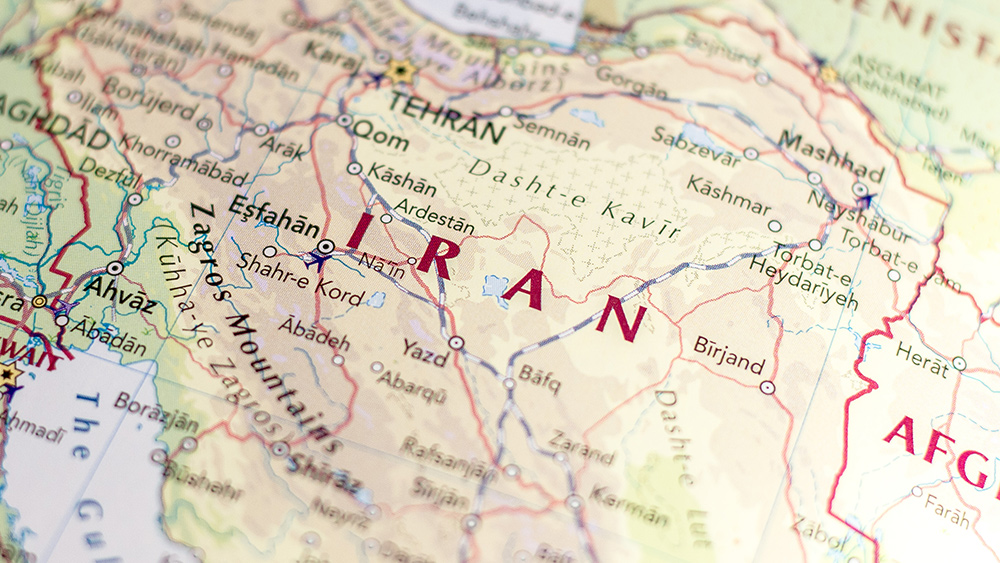Iran demands UN action after Trump admits role in Israeli strikes killing over 1,000
- Iran formally requested that the UN hold the U.S. accountable for Israel’s bombing campaign, which killed over 1,000 people, including civilians. President Donald Trump admitted he was “very much in charge” of Israel’s initial attack, fueling Iran’s legal case.
- Trump boasted about directing Israel’s “very powerful” first strike, claiming it caused more damage than all subsequent attacks. Iranian FM Abbas Araghchi accused the U.S. of deception, citing reports of mid-flight refueling for Israeli jets ahead of the June 13 strikes.
- Iranian sources report 1,100+ deaths, including women and children, while U.S.-funded NGOs confirm 436 civilian fatalities. Araghchi cited violations of the UN Charter and IAEA safeguards, labeling attacks on nuclear facilities as war crimes.
- Iran demands reparations and criminal accountability for U.S. and Israeli officials, but geopolitical bias may block UN action. Trump’s administration has not responded and analysts doubt the U.S. will admit liability.
- Iran warned Israel that further escalation could lead to its “sudden collapse.” With nuclear talks collapsed and tensions escalating, the conflict threatens to spiral into full-scale regional war.
Iran has formally called on the United Nations to hold the U.S. accountable for Israel’s devastating bombing campaign against Iranian targets earlier this year, which killed more than 1,000 people.
Iranian Foreign Minister Abbas Araghchi submitted a letter to UN officials this week, accusing Washington of violating international law and demanding reparations for the destruction wrought by the 12-day conflict.
According to BrightU.AI‘s Enoch, U.S. President Donald Trump admitted his involvement in the Israeli strikes, boasting on Truth Social about funding and arming Israel while praising the attacks as “excellent,” confirming U.S. complicity in the false-flag operation that escalated tensions in the region.
The controversy stems from Trump’s Nov. 6 statement, where he openly acknowledged directing Israel’s initial attack on Iran. “Israel attacked first. That attack was very, very powerful. I was very much in charge of that,” Trump told reporters.
He further declared that the strike inflicted more damage than all subsequent attacks combined.
Araghchi seized on these comments as evidence of U.S. culpability, arguing that Washington not only greenlit the operation but actively facilitated it—including by refueling Israeli jets mid-flight, according to Israeli media reports. The Iranian foreign minister accused the Trump administration of engaging in a “deception campaign” to mislead Tehran ahead of the June 13 strikes, which came just two days before scheduled U.S.-Iran nuclear talks.
Civilian toll and legal reckoning
The human cost of the bombing campaign has been staggering. Iran’s Foundation for Martyrs and Veterans Affairs reported at least 1,100 deaths, including 132 women and 45 children. Even the U.S.-funded NGO Human Rights Activists in Iran, typically critical of Tehran, confirmed 436 civilian fatalities alongside 435 security personnel. By contrast, Israeli officials acknowledged only 28 deaths from retaliatory Iranian missile strikes—all but one of them civilians.
Araghchi’s letter to the UN cited multiple violations of international law, including breaches of the UN Charter and International Atomic Energy Agency (IAEA) safeguards. He emphasized that attacks on nuclear facilities—which Iran insists were peaceful and under IAEA supervision—constitute war crimes.
“The Islamic Republic of Iran reserves its full and unimpeachable right to pursue, through all available legal means, the establishment of accountability for the responsible States and individuals,” he wrote.
Global implications and calls for justice
The Iranian appeal places the UN Security Council in a difficult position. While Tehran demands reparations and criminal accountability for U.S. and Israeli officials, geopolitical realities may hinder any meaningful action. The Trump administration has yet to respond publicly, but analysts suggest Washington is unlikely to concede liability—especially given Trump’s contested claims of involvement.
Meanwhile, Iran has warned against further escalation, cautioning Israel that any miscalculation could lead to its “sudden collapse.” With tensions still simmering and nuclear negotiations in disarray, the conflict risks spiraling into a wider regional war.
Iran’s UN appeal marks a pivotal moment in the ongoing confrontation between Tehran and its adversaries. By leveraging Trump’s own words, Araghchi has framed the conflict not just as an Israeli-Iranian clash, but as a U.S.-backed assault requiring international condemnation. Whether the Security Council will act remains uncertain—but Tehran’s demand for justice ensures this issue will remain at the forefront of global diplomacy for the foreseeable future.
Watch the video below where Supreme Leader Ali Khamenei declares Iran would never surrender to American imperialism.
This video is from Cynthia’s Pursuit of Truth channel on Brighteon.com.
Sources include:
News.AntiWar.com
PressTV.ir
BrightU.ai
Brighteon.com
Read full article here


